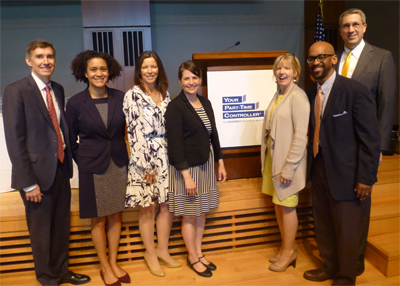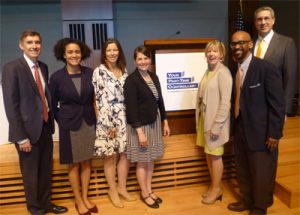 Nonprofits working in the educational sector face ongoing challenges. Their stakeholders are highly passionate with widely varying opinions and agendas. Establishing metrics to evaluate program impact can be daunting. And of course there is always the issue of inadequate funding to meet the needs.
Nonprofits working in the educational sector face ongoing challenges. Their stakeholders are highly passionate with widely varying opinions and agendas. Establishing metrics to evaluate program impact can be daunting. And of course there is always the issue of inadequate funding to meet the needs.
These were some of the issues addressed at Your Part-Time Controller’s 2016 annual all-staff training meeting. YPTC used this occasion to convene a roundtable of five recognized leaders in education – all of whom are YPTC clients. They shared their exciting innovations in education that are working through these challenges.
TRANSFORMING EDUCATIONAL LEADERSHIP
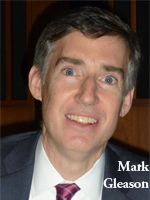
In a city with 240,000 children in schools, the Partnership aims for a time when no family lacks access to a high-quality school. It is investing $100 million in high-performing K-12 district, charter and private schools to deliver outstanding educational outcomes for the city’s economically disadvantaged children. 21,000 seats have already been opened in these schools; the Great Schools Fund aims to give 35,000 more students access to high-quality schools. “We still have a long, long way to go,” he said.
“Not all students have to go to college, but when only one out of 10 students in Philadelphia’s schools are getting into college we have a lot of work to do.”
The investments include incubating new school ideas, expanding high-performing schools and opening new ones. The most efficient investment is in what Gleason called “turnaround” schools – not building new infrastructure but rather utilizing existing buildings to transform struggling schools. The Partnership “reboots the system,” bringing in new leadership featuring school operators with strong track records of turnarounds in urban schools. This creates changes that are transformational rather than incremental.
What distinguishes the Partnership from similar groups is that it is “agnostic” about its support. “There is a lot of toxicity between the public vs. private narrative, between the public district schools vs. the public charter schools, between public vs. parochial. We’re agnostic: we support them all as long as they are in the City of Philadelphia and are educating kids from low-income families.” Rather than getting into a debate as to which is the best type of education, the Partnership’s goal is to create great schools that help students to get a quality education and good careers.
Gleason said the ingredient common to all great schools is great leadership. Because there are not enough well-trained and qualified school leaders the Partnership developed the nationally-recognized PhillyPLUS – Pathway to Leadership in Urban Schools. This program will have recruited and trained 75 principals in its first three years of operation and will train 30 to 40 more per year going forward. “Over time this will transform the educational leadership of the city,” he said.
ADDRESSING THE DIGITAL DIVIDE
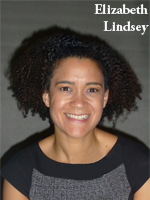
Byte Back is putting tech within reach of 12,000 underserved, unemployed and underemployed adults each year with computer training, access to technology and career services. Students can take free courses ranging from beginner-level along a pathway to technology skills development including advanced IT certification programs that are recognized by employers.
While many computer literacy programs work with disconnected young people, Byte Back reaches people of all ages who want to change careers or start new ones. “We meet people where they’re at,” she said.
She recalled one former student who told her how Byte Back had changed her life. The woman had been living in her car and could not figure a way out of her life circumstances. She came to Byte Back with no experience in computers. She started in an intermediate level class where she gained not only new skills but confidence and a belief in herself that she could actually succeed and build a career. Today she is working as an IT specialist and has her own apartment.
INVESTING IN URBAN CATHOLIC EDUCATION
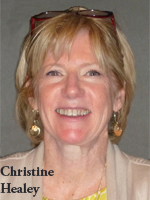
“We knew that urban Catholic schools were unique,” she said. She serves as Board Chair of Catholic Partnership Schools in Camden, one of the nation’s most distressed communities. Five schools left the corporate structure of the diocese to now operate independently in educating 1,000 children. The Partnership schools are outperforming other schools in the district, providing enriched, student-centered programs that prepare their graduates for successful transition into rigorous college preparatory or technical high schools. Partnership schools are closing the gaps in learning at per-student costs significantly lower than in other schools.
This investment in Catholic education – and in particular urban Catholic education – may be difficult to evaluate. Data such as the number of students enrolled, dollars raised and changes in students’ proficiency in reading can be measured, but what is harder to quantify is the qualitative information about trending. Measuring the real return on investment is an ongoing issue.
“Organizations like ours have a lot of moving pieces,” she said. “How do you tie the dollars that are invested to what happens to an individual child to know whether he or she is getting the skills needed to succeed?”
CUTTING THROUGH THE NOISE AND PASSION
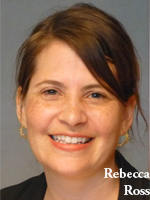
“There’s a lot of noise and passion in education,” she said. “We cut through that noise with balanced information so people can debate issues that are important to them and make informed policy decisions. Chalkbeat’s website and newsletter reporting is amplified through partnerships with mainstream news media including the Denver Post, the Indianapolis Star, and The Atlantic magazine.
Chalkbeat reporters cover educational change efforts in local communities nationwide and uncover the education stories that other media do not explore in depth. Deep, local coverage of educational policy and practice informs better decisions that lead to better outcomes for children and their families.
Chalkbeat continually gets compliments from schools that appreciate its fair, accurate and independent coverage of potentially uncomfortable topics. Its diverse readership includes school personnel, education influencers and curious parents, residents and school board members.
Tracking outcomes in public journalism is notoriously difficult, she said: a story that might be popular and get a lot of online “clicks” may not be one that is actually having the greatest impact. Meanwhile, massive changes are affecting the journalism industry as a whole: sustainability is in peril with decreasing readerships and advertising dollars and the rise of digital media. Journalism is a public good but the private market cannot support it adequately, so new business models are needed that involve diversified revenue sources.
FIXING THE BROKEN PIPELINES IN EDUCATION
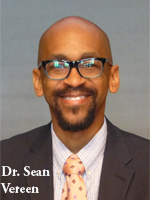
“My mind is blown when I see whole swaths of cities where people just don’t care enough about education,” he said. Students in these neighborhoods cannot keep up with their more advantaged neighbors who may live just a few blocks away. And even for those students who do well in school, at the end of the day they go back to really tough neighborhoods with chronically high unemployment rates.
Steppingstone is creating a unique and innovative role in Philadelphia’s nonprofit landscape as a coordinator of organizations, programming and services bringing high-quality college and career preparation to educationally underserved students. One signature program is its innovative partnership with universities, both on campuses and in after-school and summer programs. In one such program, students are working in robotics with faculty at the University of Pennsylvania’s School of Engineering and Applied Science. The project will launch research, teacher training and enrichment content that can be used to build the STEAM curriculum in other programs.
Vereen sees skills development as a keystone of anti-poverty programs. “You can be a hard-working kid but if you don’t know math or if you can’t read you won’t get into college.” Through Steppingstone Scholars’ programs, some 1,500 students have gone on to earn their degrees.

